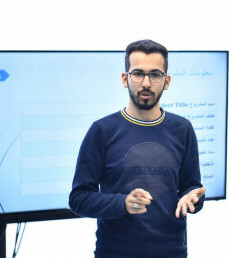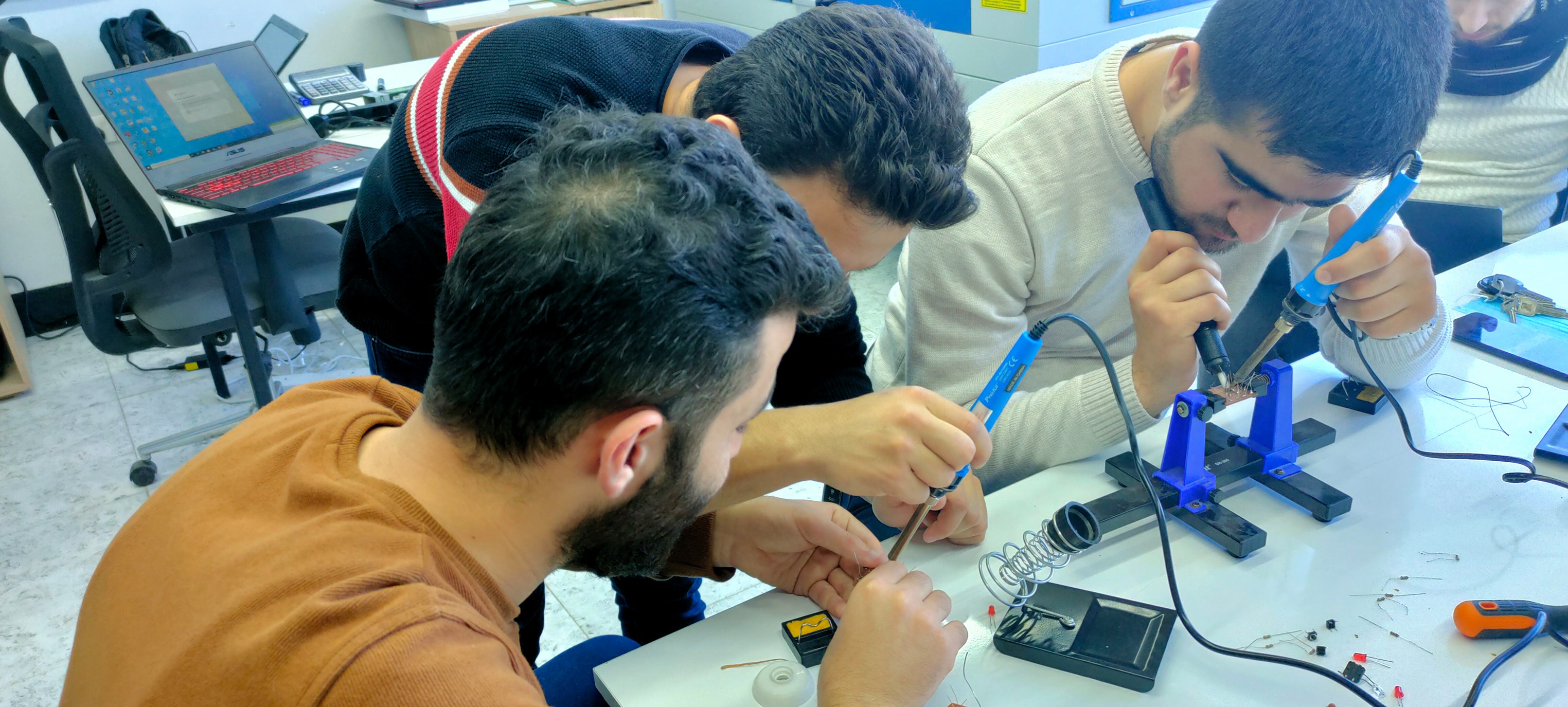
We hope that our youth will be pioneers in the private sector, and I encourage them to use technology to find job opportunities
By Ahmed Mahmoud

We hope that our youth will be pioneers in the private sector, and I encourage them to use technology to find job opportunities
By Ahmed Mahmoud
Engineer Saleh Mahmoud, born in 1996, noticed his city, Mosul (the center of Nineveh Governorate), lacks any initiative that attracts interest in electronics and modern technology. He thought of establishing a workspace that encourages young people to learn about technology and benefit from it in setting up their own projects.
"We started with a small gathering of electronics enthusiasts, between me and my colleagues. We collect our own expenses, buy electronic devices, share possession of them, and try to develop them," Mahmoud recounts his interests when he was a student in the Electrical Engineering Department at the University of Mosul.
Mahmoud and his colleagues lacked any gathering in the city of Mosul to embrace them and provide them with the necessary space to fulfill their desires to innovate in the field of electronics.
With the passage of time, they developed a technical workshop containing some electronics manufacturing equipment; 3D printers and more.
But their ambition soon stopped for a whole year, and the assembly members were forced to leave Mosul because of the bloody security events that took place in Mosul after it came under the control of the Islamic State, ISIS in August 2014.
During the displacement, Mahmoud was able to communicate with his colleagues and continue to work in displacement outside the city of Mosul.
After their return to their city after the Iraqi forces regained control of it in 2017, they contributed to the repair of some medical devices that were destroyed during the war, and to help the Mosuli community.

Young people learn the electronics industry in "Mosul Space" platform. KirkukNow
Later, they officially announced the launch of the "Mosul Space" platform, which is the first institution working to develop the skills of youth in the city of Mosul in "entrepreneurship" and encourage the electronics industry and the use of technology, that provides multiple experiences and requirements for its participants.
They expanded training programs to business incubation programs, in cooperation with many humanitarian organizations.
According to Mahmoud, the platform provides a collective work environment for the owners of small projects in order to develop their projects, especially in the technological field, and to form a strong network of relations between business owners with a strong connection to the internet, and other services.
"The platform offers its services to all citizens and from all governorates, but it focuses on Nineveh, since its programs are implemented via a remote (online) system," Mahmoud says.
The platform recently concluded a "business incubator" project, in which 150 people participated, representing different projects, with 11 projects from Mosul, and one each from Kirkuk, Baghdad and Basra.

Nineveh, January 26, 2021, an electronics workshop in Mosul, center of Ninveh Province. Mosul Space Platform
The founder says due to the absence of the private sector in Mosul, most of the participants in the platform are university students, so the platform established non-profit projects in cooperation with international donors, in order to support young people in launching their emerging projects and developing their skills to support the private sector.
Mahmood believes the use of technology is an essential part of their work, as they follow the latest technologies in the world, train young people on them, and use their equipment.
Mosul Space succeeded in helping more than 100 young people within two years to obtain job opportunities in private companies or government institutions, and it also contributed to the establishment of more than 10 start-up projects.
Regarding the platform's ambitions, Mahmoud says, "We hope our youth will be among the pioneers in the private sector, and I encourage them to use technology to find job opportunities."